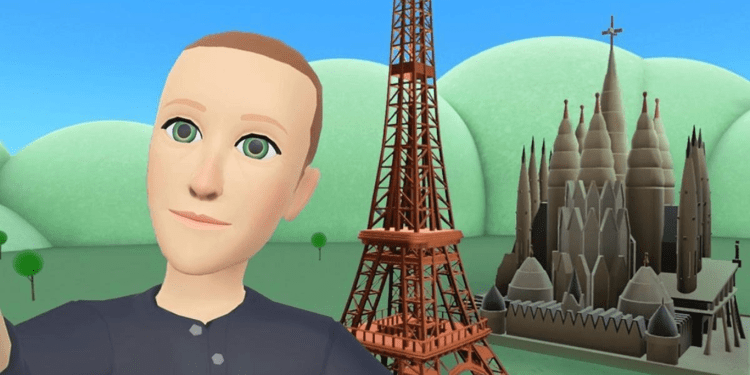Meta’s ultra-realistic ‘codec avatars’ represent a leap forward in the metaverse, offering users an immersive sense of presence and intimacy.
- Meta’s ultra-realistic “codec avatars” mark a significant advancement in the metaverse, creating a strong sense of presence and intimacy for users.
- Artificial intelligence is at the core of Meta’s metaverse strategy, powering content understanding, context, and the quality of its platforms, including the development of AI companions like MetaAI.
- Mark Zuckerberg is optimistic about photorealistic avatars revolutionizing human interaction in the metaverse, despite obstacles like censorship and skepticism.
Mark Zuckerberg’s vision of the metaverse, a digital alternate reality powered by computers, is coming to life. In a recent podcast, Zuckerberg and AI researcher Lex Fridman showcased Meta’s metaverse technology, featuring ultra-realistic “codec avatars.” These avatars have evolved significantly since Meta’s initial legless avatars, providing an immersive sense of presence and intimacy. This development signals Meta’s commitment to integrating AI into extended reality platforms, shaping the future of social experiences.
The Rise of Ultra-Realistic Avatars
Meta’s codec avatars have transcended the uncanny valley, achieving a level of naturality that enhances user comfort and familiarity. These avatars, in stark contrast to their predecessors, offer an immersive experience that makes users feel as if they are conversing in person. This evolution underscores Meta’s dedication to advancing the metaverse, bridging the gap between reality and digital worlds.
AI as the Foundation of the Metaverse
At Meta Connect, the company’s conference, Meta’s CTO Andrew Bosworth emphasized the pivotal role of AI in shaping the metaverse. Multimodal AI, combining vision, language, speech, and other capabilities, has become central to Meta’s offerings. This includes AI companions like MetaAI, designed to pair with smart glasses, allowing users to interact seamlessly with the digital world. AI is essential for understanding metaverse content and context while improving platform quality and performance.
Meta’s Vision for Society
Mark Zuckerberg discussed Meta’s vision for a society deeply integrated with the metaverse during the podcast. He envisions a world where photorealistic avatars are used for remote work, gaming, and social interactions, fostering a greater sense of presence and connection. The ability to “teleport” into virtual spaces with loved ones through realistic avatars could revolutionize human communication. This vision aligns with Meta’s mission to create a digital space less constrained by physical realities.
Addressing Challenges and Controversies
Fridman raised concerns about challenges and controversies Meta faces, such as censorship, privacy, security, mental health, and competition. Zuckerberg acknowledged Meta’s responsibility to society and individuals, emphasizing ongoing efforts to improve policies and practices. He welcomes constructive criticism and feedback, recognizing the need for collective input to navigate the complexities of the metaverse.
The Road Ahead for Meta
While Meta is advancing rapidly in AI-driven avatars and extended reality hardware, significant technological and social challenges persist. Initial metaverse demos encountered glitches and received mixed reviews. Public acceptance of VR headsets and digital avatars remains a hurdle. However, Zuckerberg remains optimistic, believing that AI-driven authenticity and realism will gradually win over skeptics.
Conclusion
Mark Zuckerberg’s metaverse plan is taking shape through Meta’s development of ultra-realistic avatars and deep integration of AI. These advancements signal Meta’s commitment to creating immersive social experiences through extended reality platforms. Despite challenges and controversies, Zuckerberg envisions a future where photorealistic avatars redefine human communication and interaction. As Meta continues to build the foundations of its ambitious metaverse, it aims to bridge the gap between the digital and physical worlds, one innovative step at a time. The evolving landscape of the metaverse will undoubtedly be shaped by the fusion of AI and human imagination, transforming the way we live, work, and connect.














